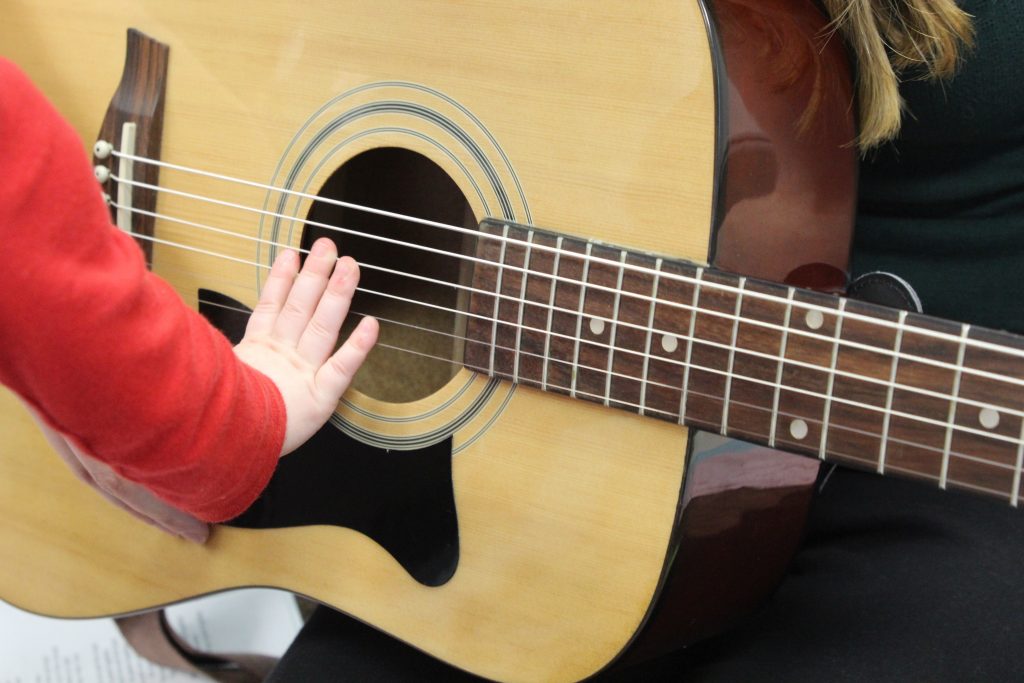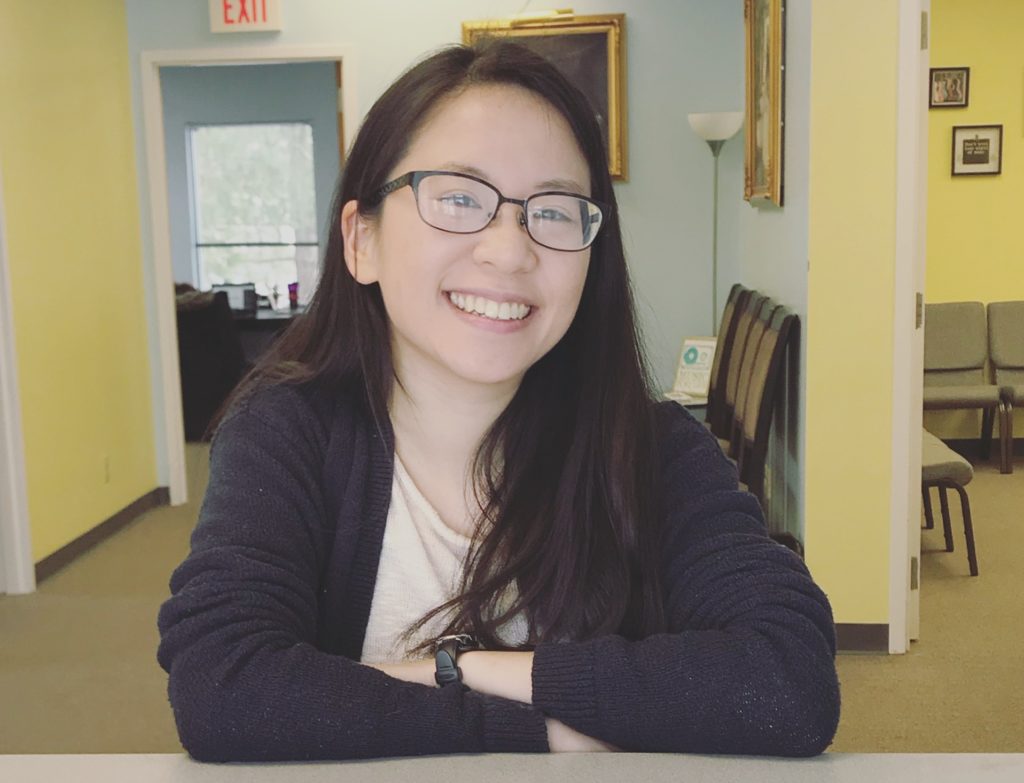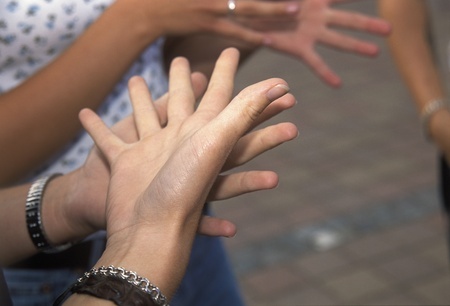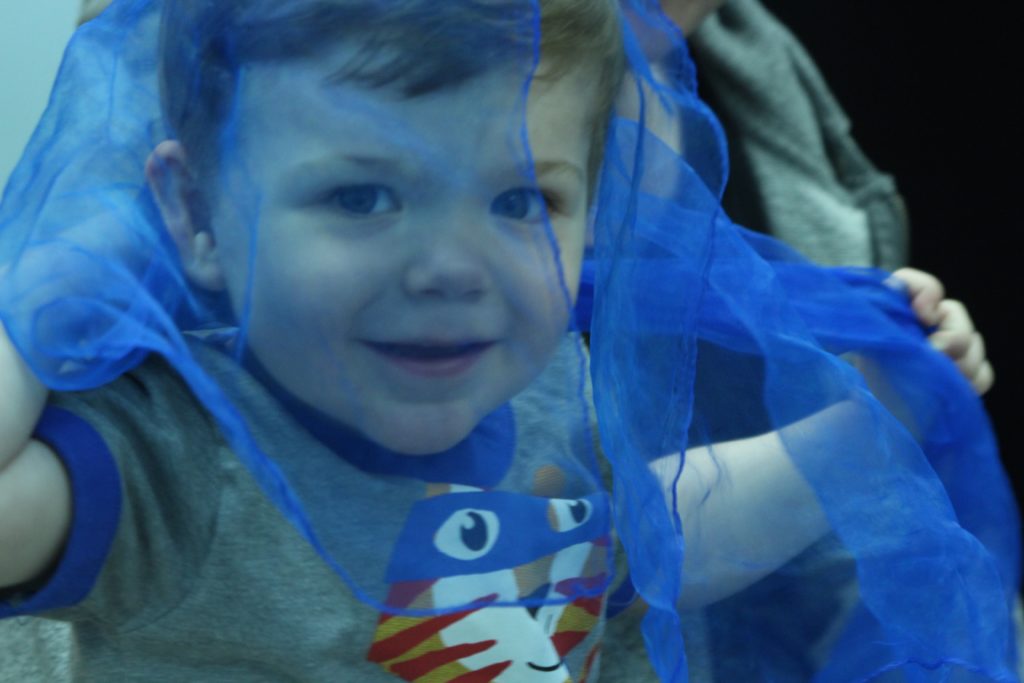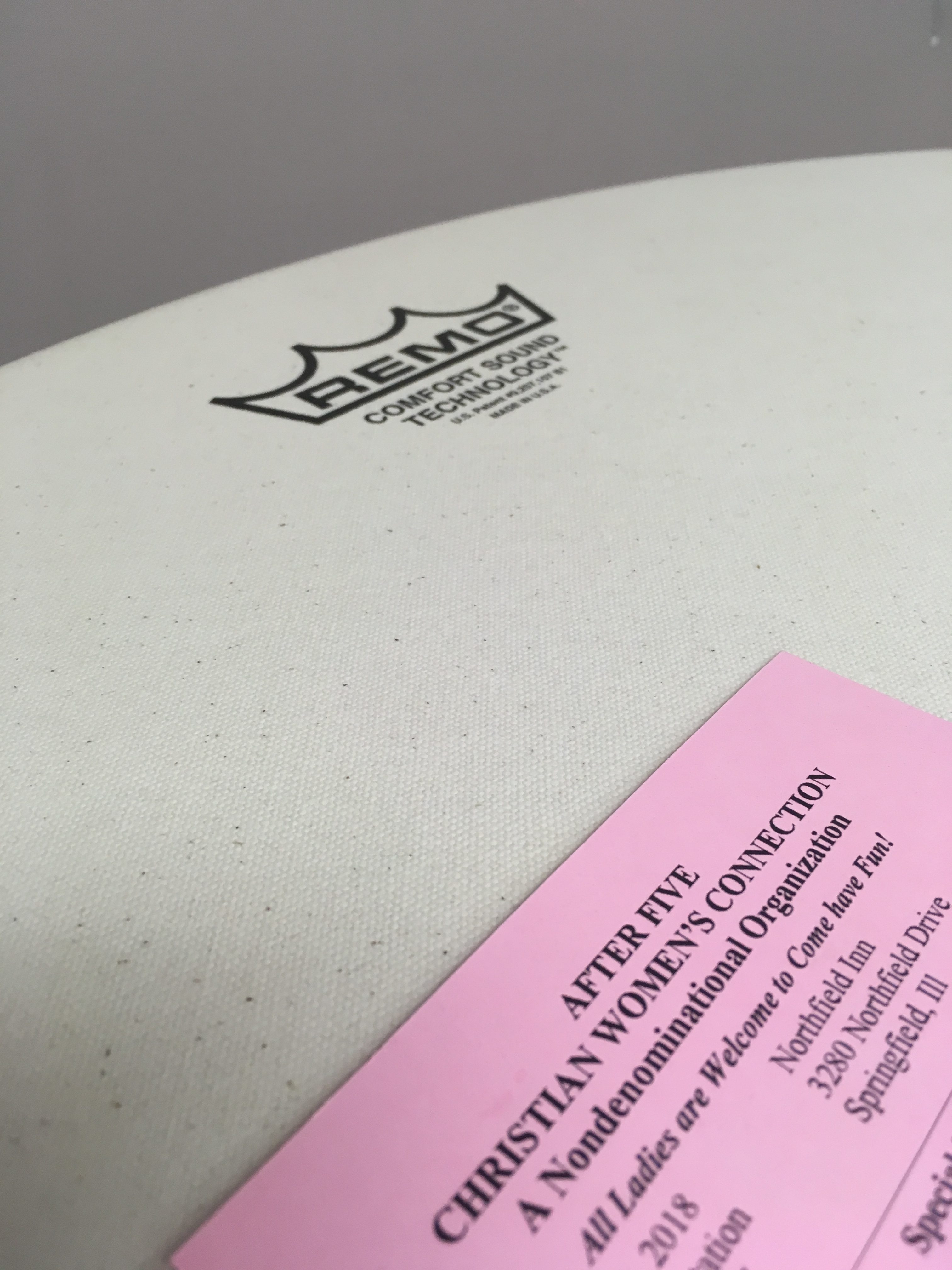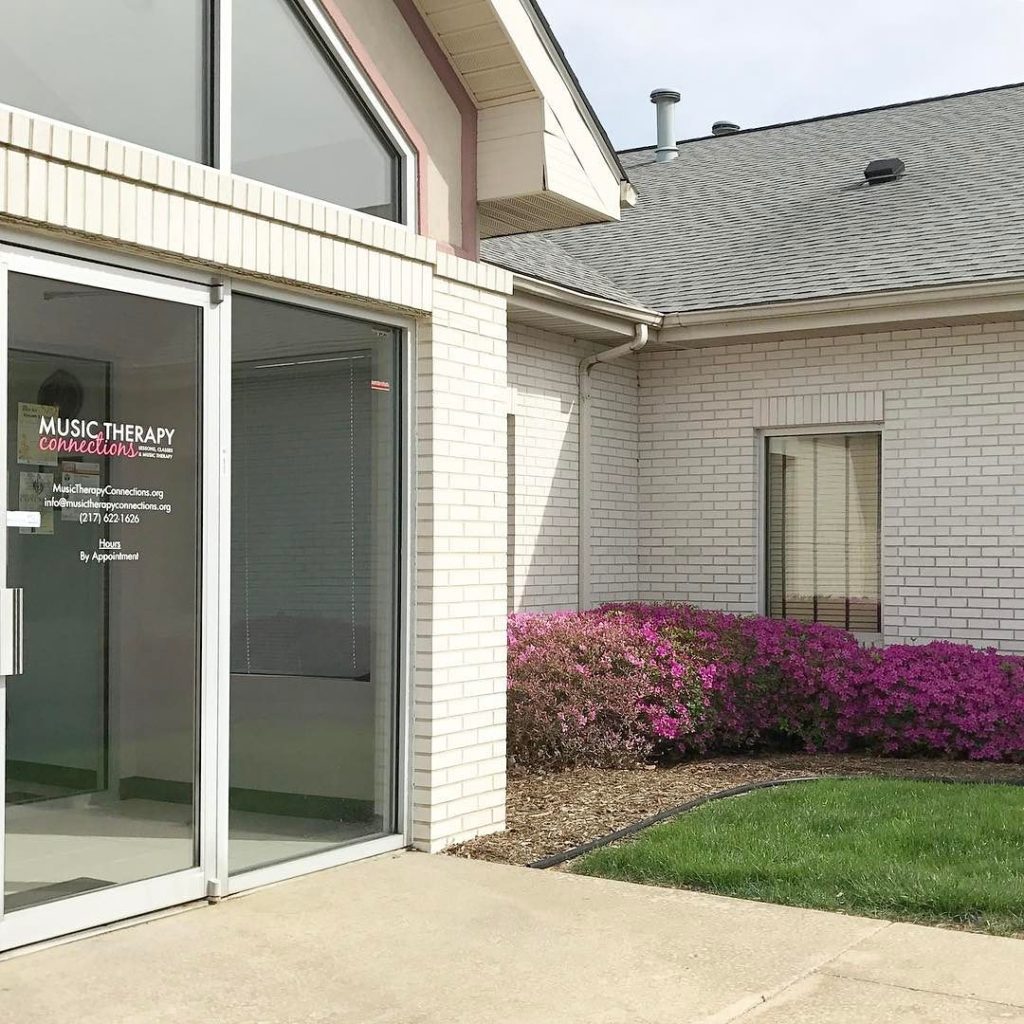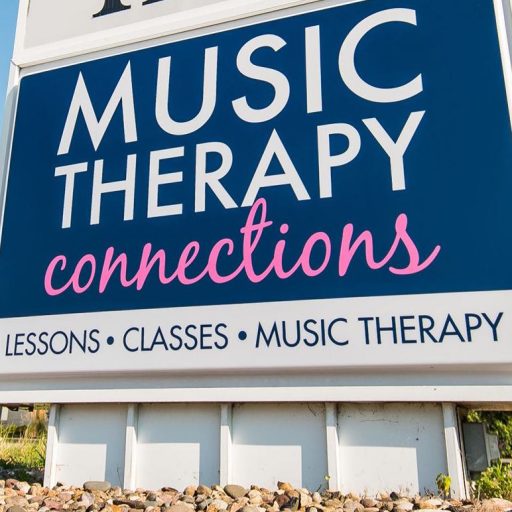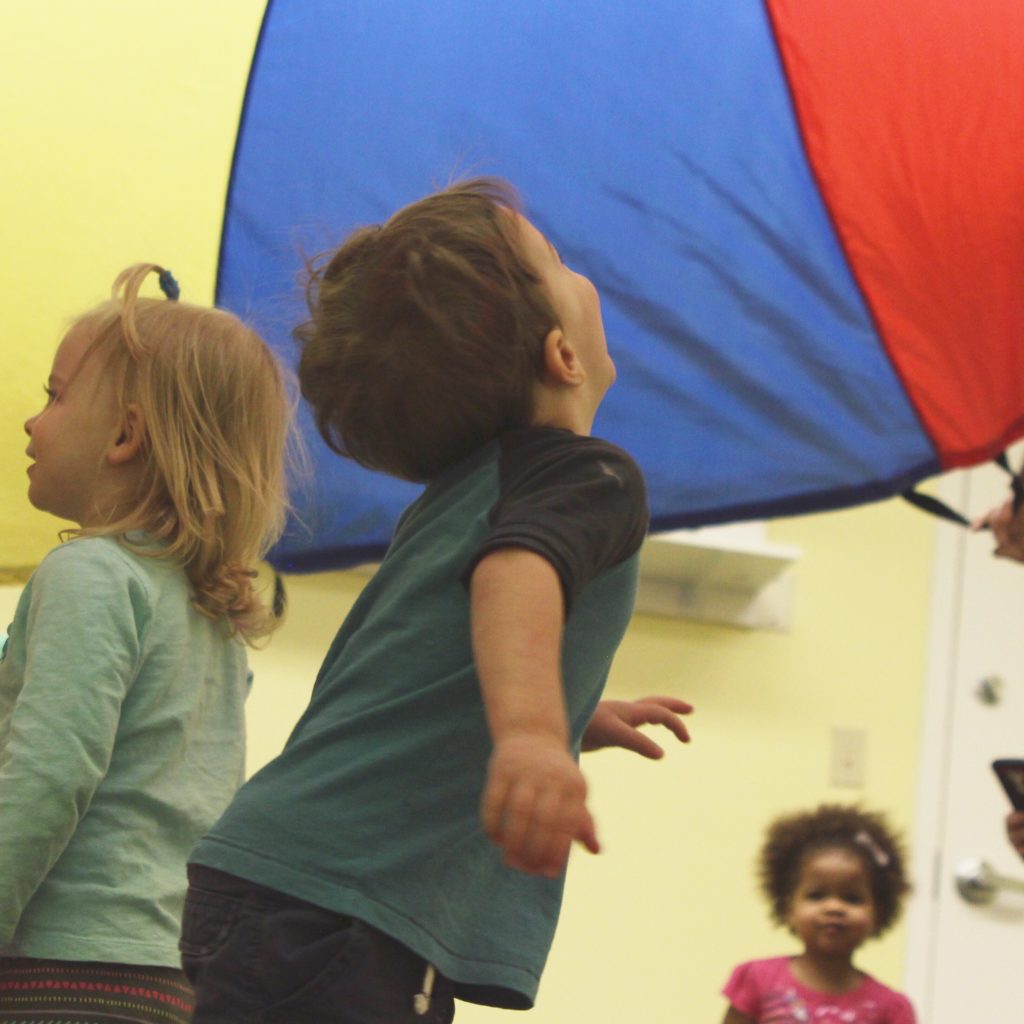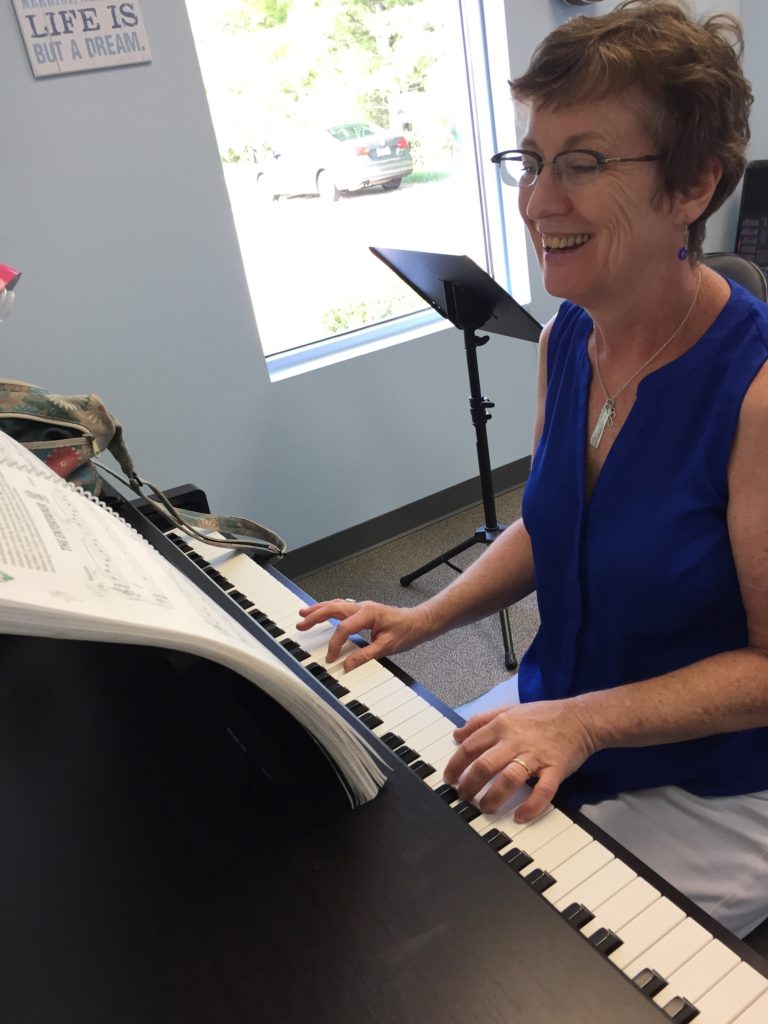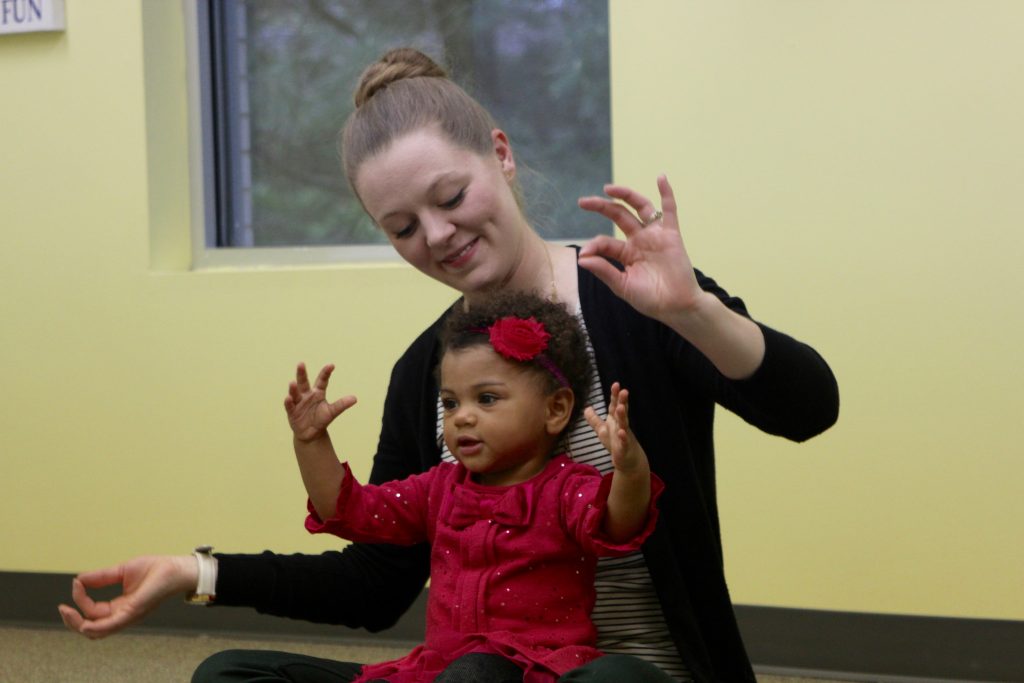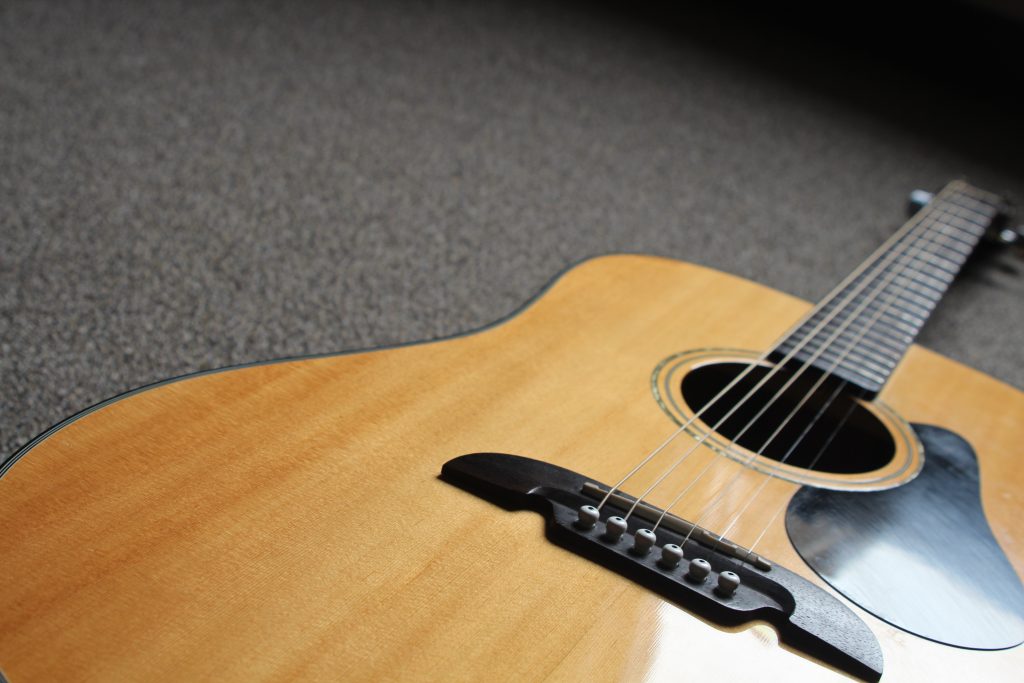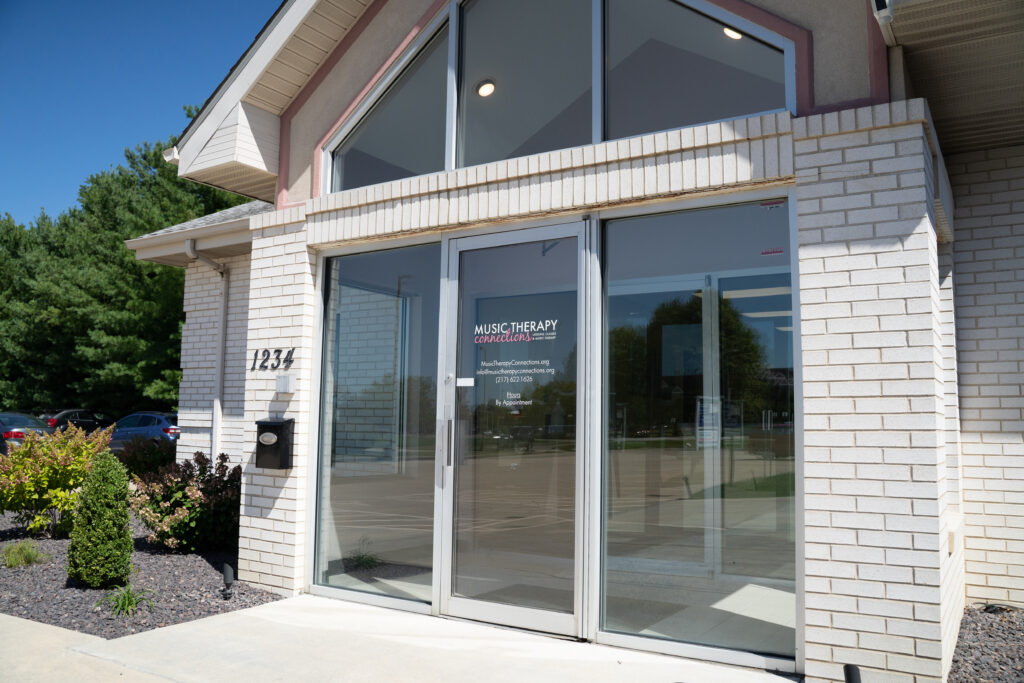by Alisabeth Hopper | Feb 9, 2018 | Services
When first meeting a new client, I am often asked something like this:
I think my son would really benefit from music therapy, but he has always wanted to learn how to play piano. Is there any way that we can do both?
The short answer is…absolutely! First, lets break down our service options. Here at Music Therapy Connections we offer lessons, adaptive lessons, and music therapy in addition to other groups and services.
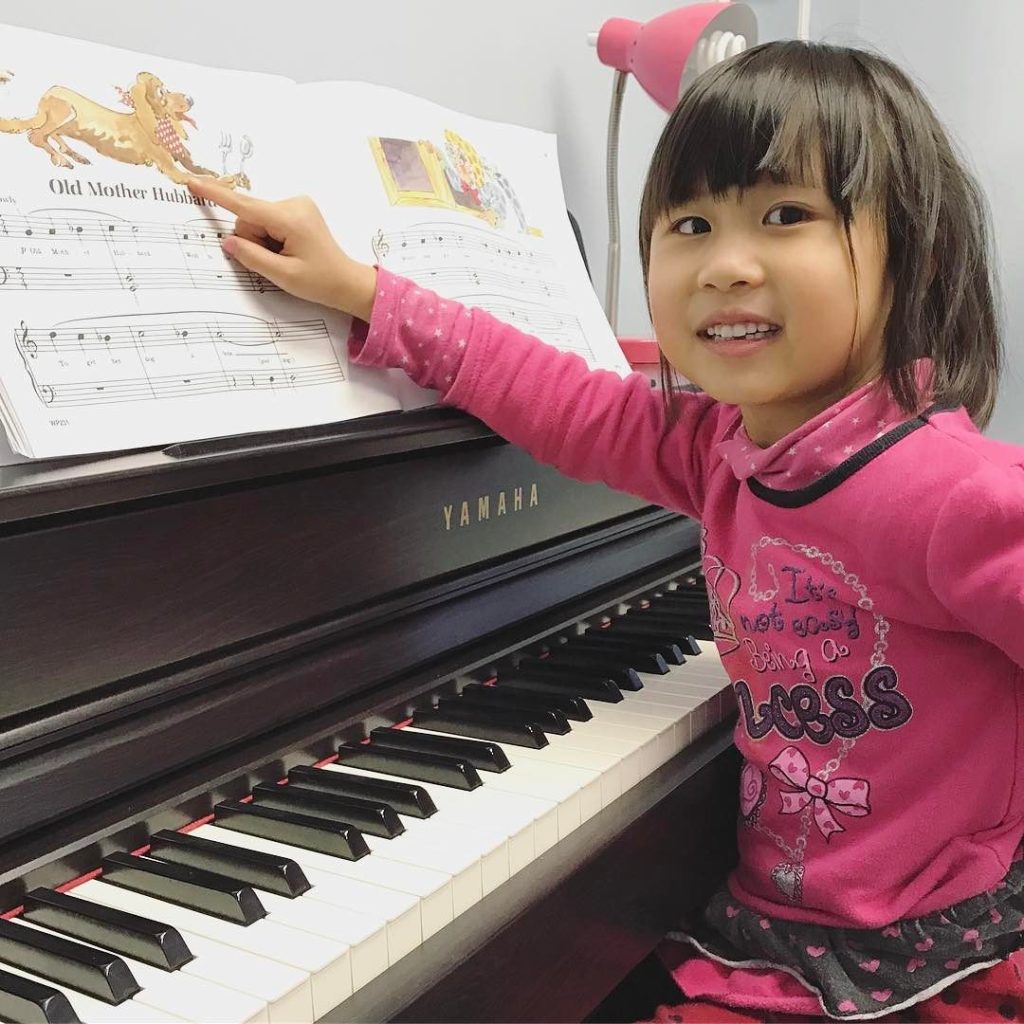
Lessons are the best fit for students who feel comfortable learning at a traditional pace and level of complexity. These students are assigned to one of our many teachers based on their interests, schedule, and special requests.
Adaptive lessons are the primary choice for students who want to focus on learning an instrument and the related musical goals, but need some additional time, support, understanding, or even alternative teaching methods. We assign these students to a teacher who can meet their special considerations and needs all while supporting them in reaching their musical achievements.

Music therapy is a service provided by one of our board-certified music therapists and focuses on non-musical goals regarding domains such as communication, academia, cognition, motor, emotional, social, behavioral, life skills goals and more. Music therapy can be a wonderful support for people of all ages and abilities in reaching their non-musical goals. That being said, I am often asked if I can incorporate a music lesson or similar structure into Music therapy sessions. We absolutely can. The only differentiator is that in Music therapy, any musical goals are always secondary to our non-musical goals.
My focus as a therapist and teacher is that my students and clients walk away from my studio with more than when they came in, whether that be more resources, more strength, more support, or more knowledge. I am so blessed to be a part of my clients’ story, lives, and growth.

by Laura Tam | Feb 6, 2018 | MTC

My name is Laura, and I am the new music therapist at Music Therapy Connections! A lot of my own personal journey to the profession of music therapy got its start from Music Therapy Connections, and I am beyond excited to be working with such a great team, as well as getting to share my experiences with you!
To start out, I would love to share a little bit about myself:
- Music was a big part of my childhood. My three siblings and I grew up taking piano lessons together, and we also all chose to play brass instruments as we got older.
- I love my job! Music therapy challenges me to not only be a skilled musician, but to make meaningful therapeutic connections with individuals of all needs. It is such a privilege to be a part of each client’s individual journey!
- I wouldn’t be here without my teachers. As a recent Master’s graduate, I have had many amazing teachers impact my life. From my beginning piano and French horn teachers to my college professors, each have helped me overcome challenges and have given me the courage to aim high.
Thanks for getting to know me, and in the spirit of my last point, I highly encourage you to thank someone in your life that has impacted you and has made you who you are today!
All the best,
Laura
by Alisabeth Hopper | Feb 1, 2018 | Resources

If you have been following Music Therapy Connections, you know that we love using sign language. I incorporate sign language into sessions with clients of all ages to support nonverbal communication, verbal communication, self-expression, fine motor skills, gross motor skills, and social skills. It is fun to learn something new within the safe and enjoyable environment of music therapy.
The first time I used sign language in a music therapy session, I was in practicum during my junior year of college. I was working with an adult with developmental delays. She struggled to process loss and was often deeply emotional and attached to the people in her life, including myself.
We used a variety of songs to experience joy, anger, sadness and more within the support of the session. One way we achieved this was by learning to sign “Bring on the Rain” by Jo Dee Messina. We learned to sign one word per line. After five sessions, she was able to sign the song with the support of the therapist.
After the song resolved, we would sit in silence for a few moments. It was as though she finally had permission to be sad without feeling rushed to be okay. What was even more amazing is that through this whole experience, she learned something new which she hadn’t done in a very long time.
I am very passionate about the potential for sign language in music therapy and across professions because I have seen what mindful application can do to support goals and growth.

You may be thinking: “I want to learn some sign language but where do I start?” I have listed five of my favorite resources for learning sign language below. These are perfect to get you started applying sign language in your daily life!
- www.aslpro.com – ASL Pro has the largest video dictionary of signs that I have found! Their signs are the most practical applications and therefore tend to be simpler to apply. They also have additional video dictionary’s for phrases and religious signs!
- www.signsavvy.com – Sign Savvy is another video dictionary website, but they often give multiple choices. If you have found a sign but it is too difficult for your clients to execute as is you can search here for variations.
- www.lifeprint.com – Lifeprint is a great website to receive free lessons on learning ASL. Now I will say that I use what I call Functional Sign Language instead of ASL for practical use with the non- Deaf population. That said, there is a lot of helpful information in these lessons and bonus, they’re completely free!
- www.aslnook.com – ASL Nook shares stories and adventures in the life of this Deaf family. Their videos are informative, fun to watch, and very endearing. You can also follow them on Facebook where they often post their videos and resources.
- www.youtube.com – I know what you’re thinking… “Really?” And yes! Youtube is fantastic resource not as a sign dictionary but for tutorials on how to sign your favorite songs! For instance, you could sign “7 Years” by Lukus Graham, or almost any other song you could imagine. Word to the wise; keep in mind that these people aren’t usually professionals and may give some incorrect information so try to find someone you deem to be credible.
There you have it! I hope you find this list of resources helpful in your journey to applying sign language to your daily life in a meaningful way.
by Alisabeth Hopper | Jan 26, 2018 | Services

“Is music therapy right for my loved one?”
I am asked this question almost every time I begin with a new client. Many people are unsure of what music therapy is, how it works, if it works, and for whom it works. I am going to break down this question to help you answer for yourself: is music therapy right for my loved one?
Let’s dive right in… so what exactly is music therapy?
Music Therapy is the practice of using music to address and support non-musical goals by a board-certified music therapist.
In music therapy sessions, a client will participate in music making, music listening, music analysis, and personal music experiences to help to reach his or her individual goals. We may hold a drum overhead to encourage a client to stand or analyze songs to process emotional trauma; the options are truly endless and based entirely on the client’s needs and goals.

That sounds interesting, but does music therapy work?
In short, yes! Music therapy is an evidenced-based practice, meaning that our techniques have been and are regularly tested in scientific studies to assess and support the efficacy of what we are doing. In addition, all music therapists are required to complete at least a bachelor’s degree and study the human body, human behavior, and musical techniques before receiving hands-on training in a 1,040-hour internship and passing a national board certification exam.

Who can benefit from music therapy?
I am often asked, “Who do you work with?” The short answer is…everyone! Music therapy is a holistic therapy modality, meaning that we treat the client as a whole and often end up treating multiple domains at once.
I have had many clients whose goals are both socially and emotionally based or academic and motor based. Our services are available to people of all ages & abilities. We currently serve clients with speech delays, difficulty reading and spelling, Autism Spectrum Disorder, Cerebral Palsy, Alzheimer’s Disease, Dementia, ADHD, depression, anxiety, rare genetic disorders, and more.
For answers to more frequently asked questions click here.
If you are wondering if music therapy could be a fit for someone you love, I would encourage you to email us at info@musictherapyconnections.org or fill out our registration form for services below.

by Alisabeth Hopper | Jan 19, 2018 | MTC, Services

This week has been an eventful one at Music Therapy Connections! One of the most exciting parts of this week happened when I had the opportunity to share a presentation with a local women’s fellowship group.
They were so welcoming, kind, and very intrigued by music therapy. I had the pleasure speaking with them and sharing a little bit of what do as music therapists! They asked questions, we sang, played instruments, and laughed together over the course of my time with them.
My favorite questions of the night were…
- Do you have to be musically inclined to receive music therapy? No, that is my job as the therapist! The benefits of music therapy are available to anyone, regardless of musical background.
- Do you work with people who suffer from Alzheimer’s Disease? Absolutely! For more information on how we support neurologic engagement, memory recall and more click here.
- Are your services covered by insurance? Many states offer a waiver for music therapy services; the state of Illinois does not at this time. Because of that, we keep our fees affordable (about the cost of a co-pay) so that those who are interested in services can absolutely pursue them!
This event, and others like it, are a vital part of what we do at Music Therapy Connections.

I think our team would agree that we became music therapists to help others, share music, and share moments. We know that what we do is so important for the nearly 200 people that receive our music therapy services from week to week, and showing our community what we do, how we do it, and answering any questions they have is the foundation to sharing our services with even more individuals!
We know that beyond anything else, we must invest time and care into our community for the business we love to grow and flourish. We have the deepest appreciation for our Music Therapy Connections community, Central Illinois community, and our online community.
Thank you to you all!
Do you know a group that would be interested in hosting a music therapist as a presenter? Do you have any questions yourself? We would love to speak with you; please email us at info@musictherapyconnections.org.
by Alisabeth Hopper | Jan 12, 2018 | MTC, Services

This month, Music Therapy Connections made another addition to our weekly services! Rachel Rambach is heading up the launch of a new music therapy group for older adults. I wanted to interview Rachel and share with you how we approach music therapy for older adults.
Alisabeth: Rachel, thank you so much for taking the time to do this interview. I am really excited to share with everyone the great work you’re doing!
Rachel: It’s my pleasure! I’m really excited about this new avenue of services, especially since it was seeing first-hand the effect music had on my grandmother that led me to music therapy. She was diagnosed with early onset Alzheimer’s Disease when I was in middle school, and as the disease continued to progress, I saw that she was still able to enjoy and communicate through music. One of my last memories with her is singing Christmas carols together at her nursing home.
A: What does music therapy with older adults look like?
R: My new group takes place in the memory care unit of a large senior living facility. There are about 15 residents on the unit, and the group varies in size each week depending on how many residents feel up to coming. The group is held in a really nice common area with a piano, comfy chairs, and couches.
I start with a welcome song, and then sing a variety of tunes both with and without my guitar. I also bring movement props like scarves and small percussion instruments like hand drums and shakers. I reserve the last 15 minutes or so for singing and playing the piano, since the residents really enjoy that. We end with a goodbye song, and then I usually stay for a few minutes to chat with everyone before I leave.
A: What kind of music do you use with older adults?
R: This is the fun part! Since I’ve worked primarily with kids up until now, it’s been a new adventure building up my repertoire of songs for older adults. I’ve compiled a variety of traditional folk songs, spirituals, hymns, musical numbers, older country music, and popular songs from every decade all the way back to the 20s. Some of the residents have also made song requests during our sessions, so I make sure to jot those down and prepare them for the following week.
A: What goals would a music therapist work toward with older adults?
R: Since this is such a new group, right now I’m working on building rapport with the residents and establishing group cohesion. My immediate goals are engagement through singing, facial expression, and body language, and as we continue our work together, I would like to increase verbal communication, encourage gross motor movement, and focus on reminiscence as well.
A: Why does music therapy work for older adults?
R: It really is magical to see an older adult, especially one suffering from memory loss or dementia, connect with a song that has meaning for him or her. Music affects and stimulates the brain in a way that speech alone does not, which is why it can be such a powerful form of communication and therapy for an older adult. The stimulation brought about by music can lead to conversations, surfaced memories, and expression that would not otherwise occur.
A: What would you say to someone who is thinking about music therapy services for an older adult in their life?
R: I would answer first as someone who has seen the powerful effects of music therapy on an older adult family member: it’s an opportunity not only to work on the goals I mentioned above, but to bring added joy into your loved one’s life. On the surface, music therapy can look or seem like a form of entertainment, but the benefits are far-reaching.
Thank you Rachel, for answering some questions today. I am so excited to see this new program grow!
If you or someone you know would be a good candidate for music therapy you can register them for services below! If you have questions email us at info@musictherapyconnections.org!

by Alisabeth Hopper | Jan 1, 2018 | MTC

Music Therapy Connections began with an idea, and Rachel Rambach serving as a teacher and music therapist for the Springfield community. Years later, Katey Kamerad contacted Rachel as a fellow music therapist in the Springfield area, contracted with her for two years, and not long after that, their partnership began. They began teaching Listen & Learn for Little Ones Classes, moved into a new location, and began building the team you all know now!
At the beginning of 2017, Music Therapy Connections had 3 board-certified music therapists (MT-BCs), a music therapy intern, and five teachers. Throughout the year we have gained two teachers and are looking to start the new year off right with an additional music therapist to further serve Springfield!

This year we have accomplished a great deal as a team. Here are just a few of our highlights from 2017.
Our music therapy team has written over 500 music therapy goals which support non musical development in people of all ages and abilities.
Our team has served nearly 200 students this calendar year!
Music Therapy Connections has held more than 25 Listen & Learn Music classes,
And shared their expertise & knowledge teaching 5 different instruments!
We have held 3 concerts showcasing the talents of our amazing students and clients.
But in all of our successes we know that there is one consistent factor — you! Thank you for bringing your unique talents and gifts to music therapy connections! We are excited to see what the new year has for you!
For more information about music therapy services or lessons, email us at info@musictherapyconnections.org or register below!

by Alisabeth Hopper | Dec 21, 2017 | Class Registration, Lessons
As a music therapist, I am a strong believer in the ability of music to support development, cognition, and motor skills. I am very proud to be a part of our amazing team at Music Therapy Connections, which includes teachers and music therapists offering opportunities to grow and learn in a fun and engaging environment.
This holiday season, we are offering gift certificates on all of our services here at Music Therapy Connections!

We offer individualized lessons for guitar, voice, piano, and ukulele. These lessons are for children, teens, and adults! We pair our students with a teacher who best complements their personality, interests and schedules. Your lesson experience is truly your own!

For those under the age of five, we offer Listen & Learn for Little Ones developmental music classes. These classes support both the musical and nonmusical development of your very special little ones. We play instruments like shakers and drums, dance, explore social skills, and offer opportunities for bonding with parents, grandparents and other family members!
Now through the first week of January, you can purchase an All-Access Class Pass for your family — including multiple children — for just $165. By registering for the rest of the school year, you’ll save the cost of an entire session (or more, if you have 2 children). With an all-access class pass, your family can attend all 4 remaining sessions AND receive a USB flash drive containing the entire collection of Listen & Learn class music.

Giving a series of classes or lessons is the gift that continues to support and nourish the lives of the people you love! Sending you joy for a very happy holidays!
by Alisabeth Hopper | Dec 7, 2017 | Self Care

Here we are: it’s Christmas time. I’m sure I’m not the only one who is equally excited and stressed about the holiday season. I worry about getting ahead on my work before the holiday, my students’ many holiday performances, documentation that is due, scheduling family gatherings, and then there are the gifts!
It is not hard for me to find reasons to feel overwhelmed about the holidays and lose sight of the joy & cheer all around me.
This year I refuse to let stress and circumstantial issues dictate whether or not I will enjoy this season! So, in true holiday form I came up with a self-care advent calendar! These are just a few things we can all do to get into the holiday spirit!
- Turn on your favorite music & stretch. Let’s start off nice and easy, shall we? Take a moment at some point in your day to turn on music you enjoy. Then start stretching along with some deep breathing to release any tension you may be carrying.
- Gift yourself with some sacred time. I believe that there is something truly powerful in the word “sacred”. It is how I describe the things I value most highly and I treat them with the utmost respect. Even five or ten minutes of sacred time to do whatever you please can be a day changer! Take some time to read, have a glass of coffee or tea and enjoy your space. This time is yours!
- Deep breathing. I’m sure you have heard someone suggest that you “take a deep breath!”, especially if you were upset at the time. But deep breathing is extremely effective! Take five deep breaths (moving your abdominals outward when you inhale) from the diaphragm and hold for just a moment before slowly releasing your air in a steady stream. This can slow your heart rate and bring much needed oxygen to your brain for a clear mind!
- Offer help. Something as small as holding a door for another, carrying someone’s bags, or showing kindness in general can contribute to our greater sense of purpose! Be generous of your time and efforts today!
- Ask for help. I know, this one is a bit more challenging. It can be difficult to ask for help and reach out for support, but in doing this you are inviting people into your life and creating support for yourself in the process.
- Try meditation. That is, try it if you haven’t already. I started meditation a few months ago and it has made a dramatic difference in my life. I feel more grounded and focused throughout my day, and if I meditate right before bed time, it helps me sleep better too! There are some amazing apps to get you started. I use Simple Habit as my go-to app.
- Write a gratitude journal. A gratitude journal is a list of things you are grateful for today. I encourage you to challenge yourself! I usually aim for one hand written page of gratitude. This practice brings the positive into focus and the negative out of frame. When I find I am stuck in a negative mindset I reach for my gratitude journal to set me back on track.
- Spend quality time with someone you love. This is one of my favorites! Feed your soul and spend some time with a friend, family member, or spouse. Give yourself permission to set aside your responsibilities for some quality time.
- Go for a walk outside. It may be cold, but fresh air is good for your physical body and your mind. You and I will be spending a lot of time inside over the winter season, so take a moment to smell the fresh air, hear the wind rustling, and enjoy the beautiful world around you.
- Treat yourself. It’s the last work day before Christmas for most of us. Instead of focusing on the end of the day. Pick up a coffee, tea, or treat just for you before your day even starts. Everyone else may be watching their clocks, but you can enjoy some holiday spirit all day long.
- Sit down with a book and read… for fun. No articles for work, books for a project, or emails are allowed! Pick up something you might enjoy and sit down with a warm cozy blanket. You deserve this time to rest and enjoy the holiday season.
- Say thank you. It’s Christmas Eve and you might be spending time with your family. Take a moment to tell someone “thank you”. You have been giving to yourself so generously for the last twelve days, and now you have joy in your heart to give to the people you love. This is why we self-care, so that we can be our best selves every day of every season.
Join me beginning on December 13th to begin our advent calendar through Christmas Eve.
Wishing you all a very Merry Christmas & a joyful New Year!
by Alisabeth Hopper | Oct 22, 2017 | MTC, Services

I will never forget the first time I watched a patient with Alzheimer’s come to life again.
I was in a music therapy practicum and providing group music therapy services to a group of older adults with varying states of awareness in a residential home. Many of these residents had some form of dementia. One particular resident often enjoyed music therapy by looking downward toward the floor, and when asked, rarely recalled her own name.
That is, until the day we brought in “Take Me Out to the Ballgame”. It was like someone lit a candle within her and the light and warmth swelled up in her. She straightened her back, lifted her head, and look straight at me before taking a deep breath and singing every single word. I was taken aback. I couldn’t bring myself to stop playing, so I kept going back to the beginning again and again to hear her wise voice sing yet another time.
When we finally cadenced, I expected her to sink back into herself and retreat again, but that is not what happened. For a few moments she was present as she told an elaborate story of playing ball with her brothers. She recalled her hometown, her brothers’ names, and the great details of the trouble they got into together. She belly laughed and smiled for a short while before retreating again.
That day, I left knowing that we gave her a great gift.
For a short while she wasn’t another resident, she was herself again.

Music therapy is a great resource for individuals and families suffering with dementia and Alzheimer’s disease. Music therapists use techniques alongside client-preferred music to encourage vocalizing, verbalizing, eye contact, social interaction, orientation to time and their environment. In addition, specific groups can be organized to help support residents who experience sundowning. Sundowning occurs when residents experience a higher severity of symptoms and confusion later in the day.
In this video, a music therapy student describes a study she conducted on patients’ experience in mid to late stages of Alzheimer’s and dementia, and the effect music therapy had on varying quality of life measurements. Watch the video to see her findings.
Here at Music Therapy Connections, our therapists provide therapeutic support for families and music therapy for individuals suffering with dementia or Alzheimer’s and its effects on their lives.
Our primary objective is to improve every individuals quality of life and provide them with an opportunity to express themselves regardless of their diagnosis or any other barriers.

If you know someone who would benefit from music therapy services you can register them below or email us at info@musictherapyconnections.org.



